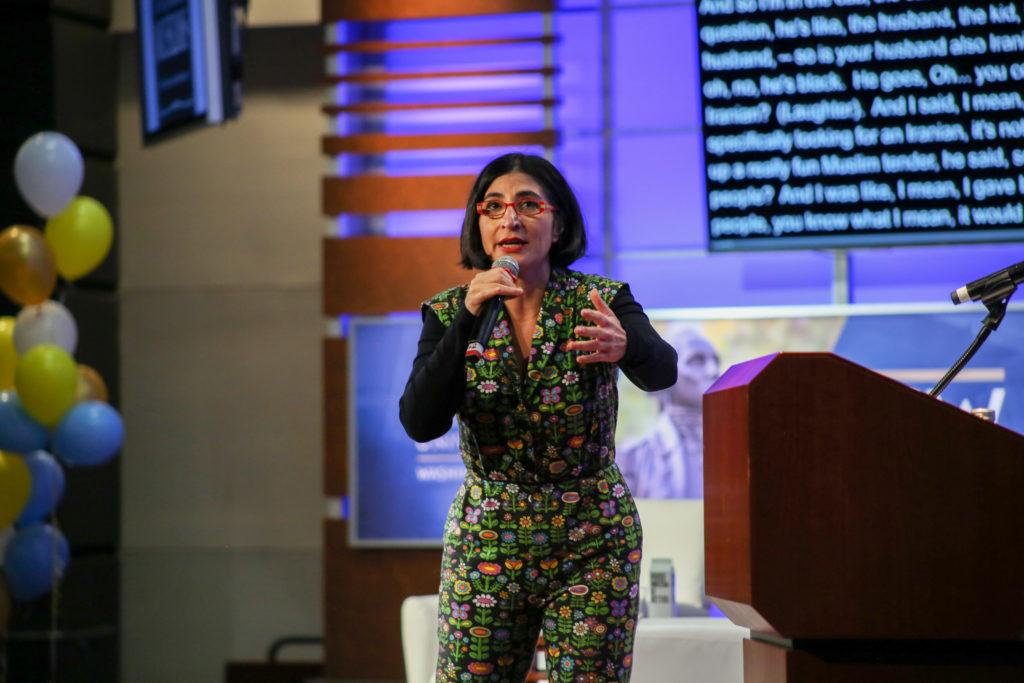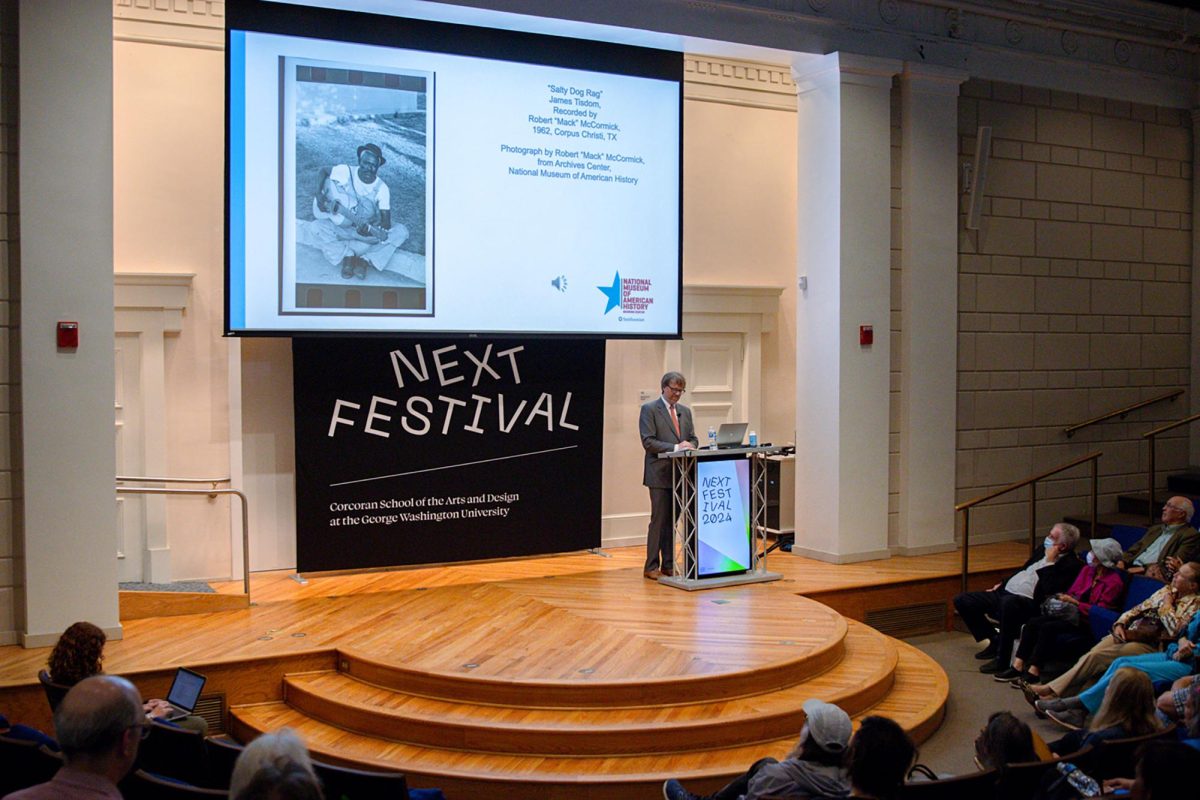A comedian and author talked about her life as an Iranian American woman and her work as a comic, discussing how she uses it to combat Islamophobia at the keynote speech for GW’s annual Diversity Summit Wednesday.
Comedian, writer and filmmaker Negin Farsad said modern American conceptions of ethnic identity are limiting, discussing how people can use comedy as a mechanism to “fight” racism and xenophobia. Jesse J. Holland, an assistant professor of media and public affairs, moderated the event at GW at the Jack Morton Auditorium in the School of Media and Public Affairs building.
Farsad hosts a political comedy podcast named “Fake the Nation,” wrote a book named “How to Make White People Laugh” in 2016 and gave a TED Talk in the same year titled “A highly scientific taxonomy of haters.”
Farsad spoke about being a “hyphenated American,” a label often referring to recently arrived ethnic groups in the United States, tying them to their point of origin, like the label of “Southeast-Asian American,” and how that affects the perception of one’s identity. She said applying labels to different groups can restrict peoples’ views of them, narrowing and stereotyping the imagery in a person’s head.
“Our ability to accept them and understand them is a little limited, right, because our labels are so rigid already,” Farsad said.
Farsad said growing up as an Iranian American in Palm Springs, California, she felt isolated because there weren’t a lot of people with a similar ethnic background living nearby. She said she “wanted” to be Mexican American because of locals’ familiarity with their culture versus her own.
“I pointed out there are so many Mexican Americans in Palm Springs and when I was growing up, I wanted to be Mexican because we moved from the sticks of Virginia,” Farsad said. “And it’s already hard enough to be a new kid at school. But I was the new kid at school named Negin who spoke English with a redneck Southern accent.”
Farsad said she got her master’s degree in African American studies from Columbia University in 2004 because she felt as part of an “underpopulated” ethnic background she felt like she could “glom” onto “the nearest largest minority group.”
“I know you might be wondering, why did you get a degree in African American studies?” Farsad said. “And the simple answer to that is it just sort of felt like the closest thing that made sense to me.”
Farsad said she worked on “The Muslims Are Coming!,” a 2013 movie that documented her experience traveling across the U.S. with a group of fellow comedians in an attempt to dispel misconceptions about Muslims. She said on one stop in Salt Lake City, Utah, she and some of the other people she traveled with stood in front of a Mormon temple with “hug a Muslim” signs and received a warm response.
When asked about how to advocate for oneself as a Muslim American, nonwhite woman, Farsad said she walks into situations acting like the people she is meeting “want me there.”
“I just have story after story of being treated terribly,” Farsad said. “And I think I was treated terribly because I walked in nervous that I was going to be treated terribly.”
Jennifer Igbonoba and Olivia Emerson contributed reporting.










